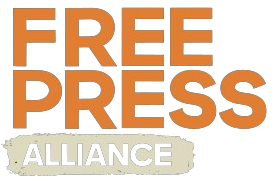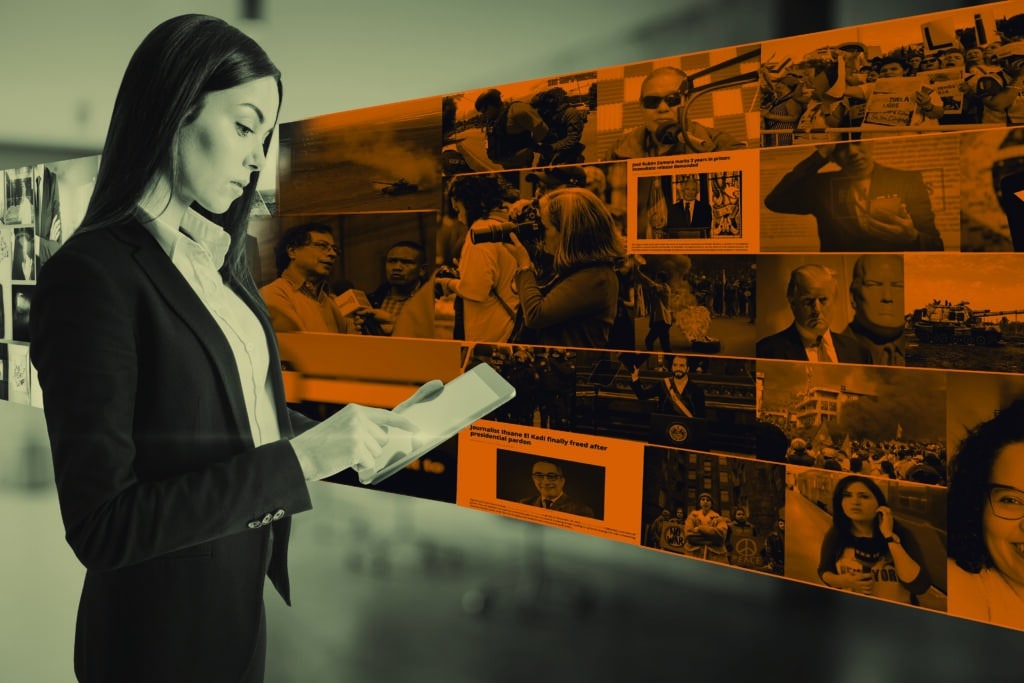The mission of journalists has always been to tell the truth about what is happening, even when doing so means challenging limits, beliefs, or powerful interests. But in today’s context, marked by disinformation, political polarization, and pressure from authoritarian regimes, that duty is tested in ways that make professional ethics increasingly fragile. Reporting is no longer just about fact-checking or protecting sources: it now involves decisions that affect personal safety, the privacy of others, and public trust.
Truth vs. speed
One of the most visible dilemmas is the clash between truth and speed. The logic of digital immediacy pushes media outlets to publish as quickly as possible, even if that means sacrificing verification and context. During Russia’s invasion of Ukraine, for example, a deepfake circulated showing President Volodymyr Zelensky falsely calling on his troops to surrender. The video was quickly debunked and removed from platforms, but in that short window it spread confusion, fear, and demoralization among those who saw it (The Verge). This case illustrates how speed can be weaponized by propagandists, forcing journalists to prioritize verification, even if it means being seconds late.
Protecting sources in the digital age
Another critical front is source protection in the digital era. Leaks, state surveillance, and mass data collection continue to undermine confidentiality, a cornerstone of journalism. The recent case of BBC journalist Vincent Kearney illustrates this risk: in September 2025, MI5 admitted to having illegally accessed his communications data in 2006 and 2009, a breach that courts deemed contrary to the rights to privacy and freedom of expression (The Guardian). This unprecedented admission underscores that even in consolidated democracies, journalists cannot take source security for granted. It forces the profession to confront a difficult dilemma: how to effectively shield their work and protect those who trust them, while maintaining transparency and credibility with their audiences.
Covering violence and trauma
Reporting on violence and trauma presents equally complex challenges. In conflict zones such as Gaza, where dozens of journalists have been killed while carrying out their work, those who survive to report face difficult editorial choices. They must weigh how much of the harrowing images and testimonies to show without crossing the line into exploiting human suffering or unintentionally amplifying war propaganda (CPJ). Covering atrocities with integrity demands not only sensitivity but also a deep ethical awareness that behind every statistic and every fact are real people whose dignity and memory must be preserved.
Editorial independence
Editorial independence is also under strain. In many countries, budget cuts and dependence on government advertising make media outlets hostages of political or corporate interests. In Bolivia, for example, press organizations denounced in 2020 that the withdrawal of state advertising was used as a punishment tool against critical outlets, further weakening information pluralism. In this context, self-censorship ceases to be an abstract risk and becomes a survival strategy.
Artificial intelligence
The rise of artificial intelligence adds another layer of dilemmas. The same technology that helps investigate and analyze data can also be used to create increasingly sophisticated deceptions. In Maryland, U.S., an athletic director was convicted after using AI to fabricate an audio clip that attributed racist and antisemitic comments to a school principal. The widely shared recording sparked public outrage and threats against the victim before it was proven false (AP News). This case shows that journalists must not only learn to detect such manipulations but also to communicate them transparently to their audiences.
Conclusion
These examples demonstrate that ethical dilemmas cannot be resolved through rigid codes but rather through adaptive frameworks that account for the complexity of each context. They require newsrooms willing to debate, journalists trained continuously in emerging technologies, and media outlets committed to accountability before their audiences. At a time when trust in media is fragile, strengthening ethics is not just a matter of principle, it is a condition for the survival of free and independent journalism.

